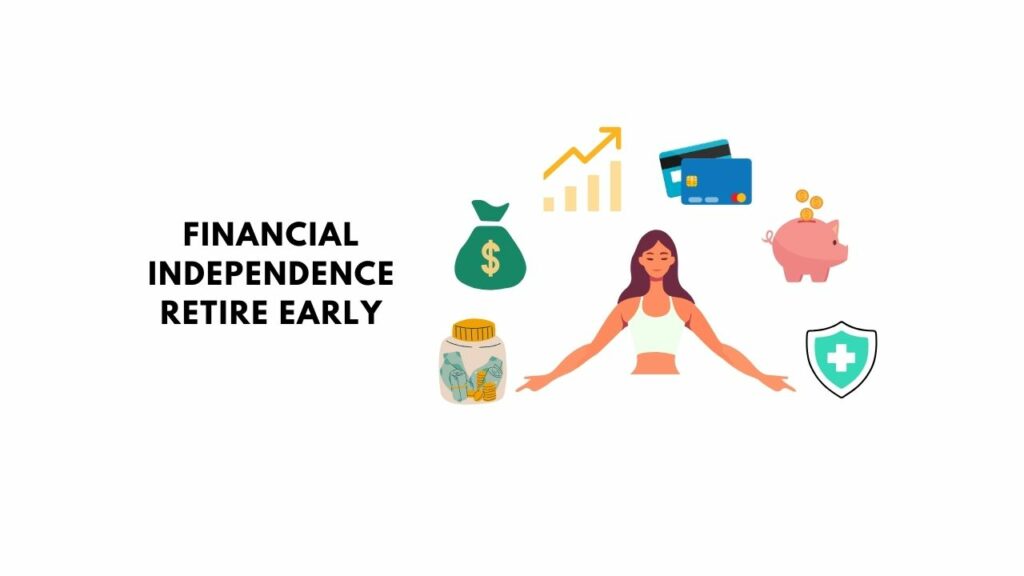FIRE (Financial Independence Retire Early) has been a buzzword in the personal finance community for several years. According to a survey from HelloWallet, 5% of Americans have already achieved financial independence and are able to retire early. People who have reached this point are often called “FIRErs” or “early retirees.” But what does it mean to be financially independent? What does it take to reach that level of freedom? And how can you get there without having to sell all your possessions and move into an RV? We’ll answer those questions here!
What is FIRE?

FIRE stands for “financial independence retire early”, and is a lifestyle that involves saving money and living below your means.
FIRE is a movement, not a status. It’s about being free from the chains of wage slavery so that you can live life on your terms. It’s about having control over your time and being able to do whatever you want with it; whether that’s traveling the world or working on side projects in your spare time.
A FIRE lifestyle doesn’t necessarily mean you have to be rich (although it helps). You don’t need millions of dollars saved up before retiring young—you just need enough money in order to survive without working until age 65 or 70+.
FIRE movement explained

FIRE stands for financial independence retire early, and it’s a phrase that has become popular in recent years. It means you have enough money to retire early and don’t need to work anymore. If you’re not familiar with the FIRE movement, here’s a quick overview:
The FIRE movement is a community of people who want to achieve FI through their own methods and goals. It began as an online community where people could connect with other “financially independent” or “retired early” friends and share their tips, stories, advice…and sometimes even recipes!
FIRE differs from traditional retirement in that it doesn’t require a certain age or amount saved up before calling it quits on your 9-to-5 job; it’s just about having your finances handled so that you don’t need to keep working if you don’t want to—kinda like how some people have enough savings that they’re financially secure even if they never go back into the workforce again (if all goes well).
Who’s in the FIRE movement?

What is FIRE, and who’s involved?
FIRE is a movement. It’s a lifestyle. It’s a community. But it’s not for everyone. In fact, only about 1% of Americans are true FIRE followers—they have enough money saved up to retire early and don’t plan on working again until they die (or until their later years). But even though this group of people has such an exclusive definition, the FIRE community still offers plenty of resources for anyone who might be interested in learning more about personal finance or just getting some inspiration from others who are going through similar life changes as they transition into being financially independent.
You should know that if you plan on retiring early—or if you just want to get started saving more today—you don’t need to be part of the 1% club yet still enjoy all the benefits of living an unconventional life style where your income comes from sources other than traditional employment:
How much do you need to reach financial independence?

There’s no magic number that works for everybody, but it’s widely agreed upon that you need to have enough money saved up to cover your expenses for at least 20 years. While this might seem like a long time, it can be difficult to plan for retirement when you’re not sure how much longer you’ll live. In general, if you’re on the younger side of life and living in an expensive area with high taxes and lots of extras (such as cars), then FIRE is probably not for you—you’ll need more than what most would consider “enough” or “sufficient.” The same goes for those who are living off of debt such as student loans: these things take time and effort to pay off before they’re eliminated from one’s balance sheet altogether.
If this sounds familiar—and if so: good news! You can still enjoy a FIRE lifestyle without going over budget every month by focusing on lowering your expenses in other areas such as rent/mortgage payments or transportation costs (think Uber instead of owning a car).
Should you consider a FI lifestyle?

If you’re a self-starter, someone who’s able to resist the temptation of instant gratification and postpone short-term rewards for long-term gain, then FIRE may appeal to you.
However, if you don’t have the ability or inclination to think about your finances on a regular basis—or if your financial situation requires more attention than your personality can handle—FI might be too much for you.
We don’t all have to be financially independent to achieve happiness.

You don’t have to be financially independent to achieve happiness in your life. There are many ways to live a good, happy and meaningful life, whether you’re living a FIRE lifestyle or not.
While financial independence is something that many people strive for, it’s not the only way to achieve happiness or success in your life. There are plenty of other ways to get there!
Conclusion
There are many definitions of FIRE, and no one way to achieve it. For example, some people want to retire early but still work part-time, or others don’t think they’ll ever be able to live without a job. The point is that you can find your own path toward happiness and financial independence — whatever that means for you. And as long as you’re willing to take action on your values, goals and priorities in life (or maybe just one of those three!), then there’s no reason why living a financially independent lifestyle shouldn’t be within reach!